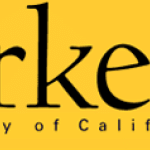- Settore: Education
- Number of terms: 4017
- Number of blossaries: 0
- Company Profile:
Opening in molluscs or in urochordates which draws water into the body cavity. In many molluscs, the siphon may be used to expel water forcibly, providing a means of propulsion.
Industry:Biology
Partition which divides up a larger region into smaller ones, such as in the central body cavity of some anthozoa.
Industry:Biology
In many animals, the body is divided into repeated subunits called segments, such as those in centipedes, insects, and annelids. Segmentation is the state of having or developing a body plan in this way.
Industry:Biology
In trilobites, the posterior division of the body, formed by fusion of the telson with one or more posterior pleurae.
Industry:Biology
Elongated organ, usually associated with the mouth. The proboscis is an important feeding appendage in echiurans.
Industry:Biology
Describes young that are mobile and fairly self-sufficient at birth. Precocial young are generally well-developed (and large) at birth, born with their eyes open, and able to walk. Chickens and grebes are examples of precocial birds; sheep and guinea pigs are examples of precocial mammals.
Industry:Biology
In trilobites and other arthropods, pleurae are elongated flat outgrowths from each body segment, that overlie and protect the appendages.
Industry:Biology
In mammals, a tissue formed within the uterus through which nutrients are passed from the mother to the embryo (and later the fetus) and its wastes are removed. It is analogous to the protective membranes in the egg of other amniotes. placental n. A mammal that gives live birth to well-developed young that have prolonged embryonic development within the mother’s uterus. Marsupial mammals also have a placenta, but the embryo spends less time developing in the uterus before birth. Placentals include animals as diverse as humans, elephants, dogs, and mice.
Industry:Biology
A category in the hierarchy of animal classification between class and kingdom; phyla- pl.
Industry:Biology
